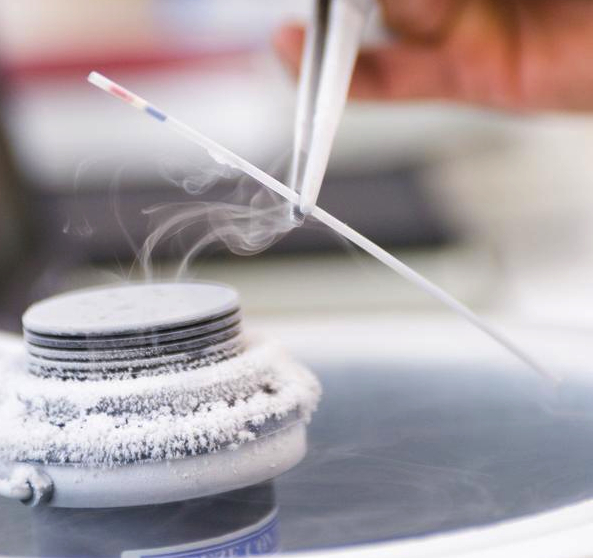The development of every animal in the history of the world began with a simple step: the fusion of a spermatozoon (the male gamete) with an oocyte, or egg (the female gamete). Despite the ubiquity of this process, the actual mechanisms through which fertilization occurs remain poorly understood. A new tool developed by a team of French biophysicists may soon shed light on this still-mysterious process, and has already captured highly detailed images of what happens when sperm and egg first touch.
Tag: oocyte
Experts Call for Greater Scrutiny of Egg Donation Practices
A new report calls for professional societies to develop guidelines specifically addressing conflicts of interest in oocyte donation and to adopt tougher reporting and advertising standards
Improving IVF Is Focus at ASRM, IFFS Meeting
When it comes to oocyte retrieval for in vitro fertilization (IVF), 15 may be the sweet spot, and mitochondrial DNA may help predict which embryos will take hold and lead to pregnancies, researchers reported in Boston at the joint meeting of the American Society for Reproductive Medicine and the International Federation of Fertility Societies.
ASCO Guidelines for Fertility Preservation Affirm Oocyte Preservation
Guidelines for fertility preservation in newly diagnosed cancer patients have been updated to include oocyte preservation as a standard practice rather than an experimental option, according to the American Society of Clinical Oncology.
Researchers Re-Create Eggs to Treat Infertility
Researchers working with laboratory rats have developed a technique that could someday help infertile women who lack usable eggs because of a hormone imbalance to conceive with new eggs created from their own ovaries.
Many women are unable to conceive because of a condition known as polycystic ovary syndrome, in which the ovaries fail to secrete enough hormones to stimulate egg production. Injury to the ovaries caused by radiation or surgery also can interfere with a woman’s ability to produce enough viable eggs, or oocytes, to achieve pregnancy. Read full article.
What is Egg Freezing
What Is Egg Freezing?
Egg freezing is a breakthrough technology that allows women to freeze and store their eggs until a pregnancy is desired. At that time, the eggs are thawed, fertilized and transferred to the uterus as embryos.
Who May Benefit
Many women today are postponing childbearing because they are focused on a career, are returning to school, or because they simply haven’t met the right person. For these women, egg freezing is revolutionary, not just in its technology, but in the life choices it allows them to make.
Over 50,000 reproductive-aged women are diagnosed with cancer each year in the United States. Surgery, chemotherapy and radiation treatments typically lead to infertility by destroying the eggs. While options vary depending on age, type of cancer and cancer-treatment plan, egg freezing can provide these women the opportunity to preserve their fertility.
And finally, egg freezing can be useful for individuals with religious or moral objections to storing frozen embryos that remain following a routine IVF cycle.
How Egg Freezing Works
It takes approximately four to six weeks to complete the egg freezing cycle, which follows the same protocol as IVF. This includes birth control pills and self-administered hormone injections to stimulate the ovaries. Eggs are retrieved and are frozen immediately following retrieval. When embryo transfer is desired, the eggs are thawed, injected with a single sperm to achieve fertilization, and transferred to the uterus as embryos.
Storage
We recommend that at least ten eggs be stored for each pregnancy attempt. For women under thirty-eight years of age, we normally harvest ten to twenty eggs per cycle. Based on our success with embryo freezing, we believe that long-term storage of frozen eggs is possible.
Success Rates
Our most recent frozen egg pregnancy rates are among the highest in the country – approximately 50% with the vitrification method. This figure is well above the national average for frozen embryos. Furthermore, we anticipate continued success and improvement in these rates with our dedication to ongoing research in the field.
Safety
To date, approximately 1500 babies have been born worldwide from frozen eggs. Among these births, the rate of birth defects and chromosomal defects has been no higher than that which we see in the general population.
Cost
The cost of egg freezing is approximately $10,000 – $15,000 plus annual storage fees.
Freezing Eggs, Embryos Poses Legal Concerns
Canada’s fertility clinics are offering growing numbers of women the chance to freeze their biological clocks by put-ting eggs – and, in some cases, embryos – into cold storage until they’re ready to have a baby
